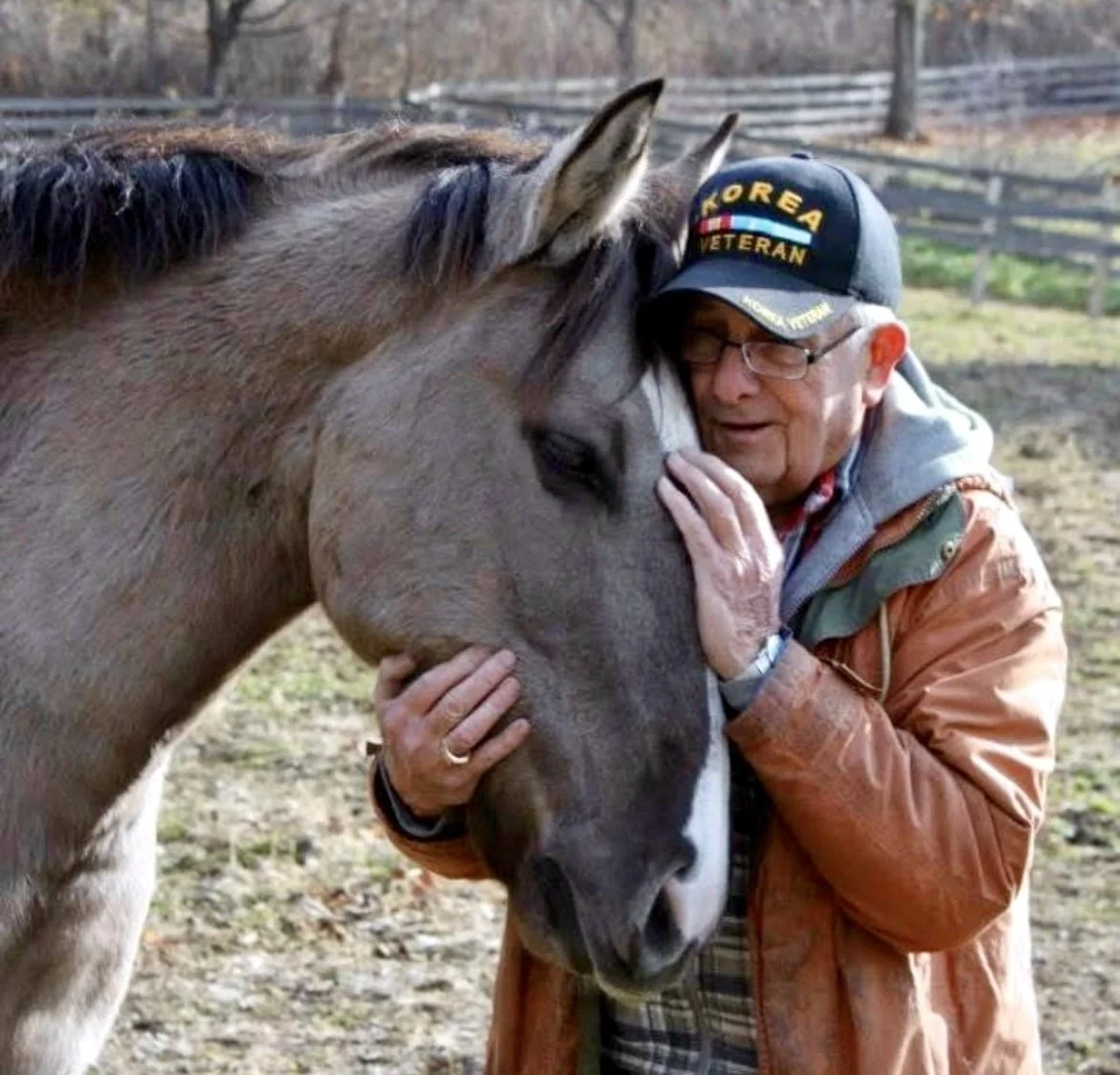Be The Change March: Little Brook Farm
By Natalie Criscione
More than a hundred horses gather for the night. Their stables beacon them with warmth, sweet-smelling hay, grain, and fresh water. Classical music plays softly in the background. As the horses settle, perhaps they share their day’s adventures with each other. Their stories might include how they galloped and frolicked through acres of grassy fields, grazed under trees, and rolled in soft mud. Perhaps majestic John Henry talks about daily volunteers like Ed Wagoner whom he greets with affectionate neighs and nudges. Perhaps Sam weaves together legendary tales of his time in Albany as the longest-serving police horse in the country. And, I wonder, do some gather together in the lengthening shadows to review in whispered language past traumas (abuse, neglect, indifference) lived before they came to Little Brook Farm?
Whatever their histories and however they arrive, whether they understand it or not, they have finally come home. What does that mean for a horse, you might ask? Considering that very few horses spend their entire life in one place and are often subject to completely different and sometimes opposing philosophies of care, a forever home means stability. A forever home at Little Brook Farm means additional love, security, and enrichment. When a horse has been rescued, it transforms. “To watch them come alive again is pretty magical,” says Lynn Cross, the farm’s founder and executive director who constantly witnesses such rebirth.
Elsie Powell, the former owner, whose family’s connection to the farm dates back to the early 20th century, brought young horse-loving Cross into her orbit 55 years ago. It was an immersion that led Cross to work with the Humane Society at the age of 17, where she assessed equine “situations” to determine whether or not a horse needed to be removed from its environment. She even launched her own rescue efforts, eventually settling on the farm after college where she broadened her vision of sanctuary to incorporate educational programs for children and adults.
In 1986, Cross established the non-profit B.I.T.S (Balanced Innovated Teaching Strategies, Inc), that brings students, teachers, and therapists to the farm. “We satisfy the NY State Humane Education requirement here by providing a space for children to learn about nature, farming, and animals,” says Cross. Although a steady stream of school buses arrive throughout the week, Cross hopes to return to the robust pre-covid levels of student visitors and is quick to invite schools and teachers to inquire about field trips to Little Brook Farm. The program seeks to open conversations, opportunities, and relationships for students whose lives are often dictated by electronic screens, indoor activities, and difficult social or family situations. Being with a horse can be healing.
“There is something called Nature Deficit Disorder—kids have a disconnect with the natural world and we try to change that,” says Cross. Through horse-care activities that include feeding, grooming, riding, scooping out stalls, and cleaning tack, young people develop a new sense of nature and themselves. For children who have never been away from their inner-city neighborhoods, imagine what it must be like for them to explore woods, roll down hills, or enter a hay mow where they are invited to just sit and gaze up at the silence of 3 stories of hay. Imagine the conversations the students might have with their new horse friends and each other. This is important stuff, imperative, but lacking in most childhoods. Yet, nature has a way of merging sensory and poetic experiences, and even a single day at Little Brook Farm can stay in a child’s imagination forever.
Like so many nonprofits, budgets are tight, and with the “staggering costs of veterinary care, plus hay and grain” says Cross, “fundraising is crucial.” During the month of March when you round up your purchase to the nearest dollar, know that you are helping to maintain happy horses and magical moments.
For more information about how you can further donate to or visit Little Brook Farm, visit their website at or join over 182,000 Facebook followers.
View all the Coop Scoop Blog posts here.


